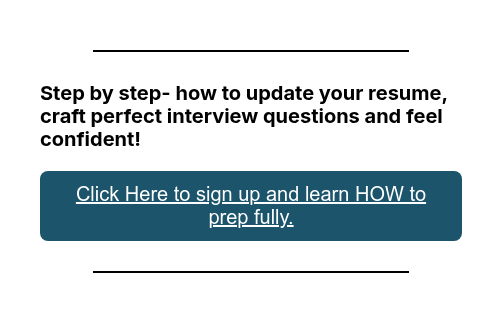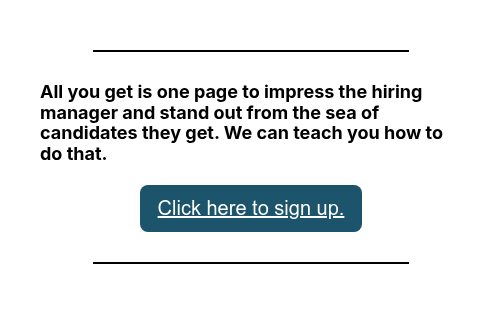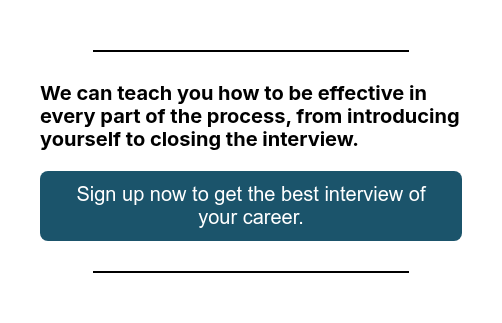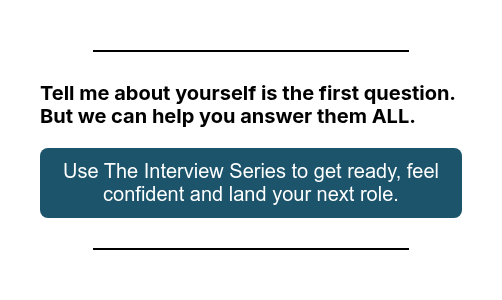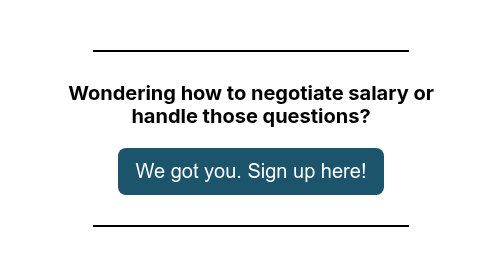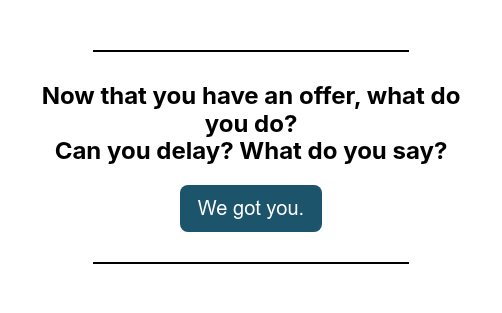The Interviewing Series Overview
The Interviewing Series at a glance.
The "How to Interview" series is your ultimate guide to mastering every aspect of the interview process. Whether you're a seasoned professional or new to the job market, this series breaks down essential lessons into actionable steps, ensuring you stand out as a candidate. From preparing by reflecting on your accomplishments, practicing your delivery, and understanding the interviewer's perspective, to crafting impeccable resumes and cover letters, every detail is designed to boost your confidence and readiness. Lessons also delve into the nuances of interview attire, introductions, and follow-up strategies that leave lasting impressions.
Each chapter goes beyond the basics, offering insights into the five critical parts of an interview, the most common pitfalls, and the art of responding to tricky questions like "Tell me about yourself" or "What are your weaknesses?" You'll also learn how to highlight your significant accomplishments in ways that resonate with recruiters, craft persuasive questions to ask during interviews, and master the often-overlooked yet vital skill of closing an interview effectively. This series doesn't stop at landing the job; it also equips you to handle salary negotiations and post-interview follow-ups with professionalism and poise.
Click on the Audio player below to listen to the Overview audio episode or keep scrolling to read the synopsis:
Series Overview Content Synopsis
- Lesson #1: How to Prepare Yourself for interviewing
-
Lesson #7: How to Handle the Big Question, "Tell Me About Yourself"
-
Lessons #8 and #9: The Most Important Question, Significant Accomplishments
Lesson #1: How to Prepare Yourself for Interviewing
- Think about it from the recruiter's point of view - what is it they want, and how do they think? And so, how should you prepare?
- What's the biggest mistake interviewees make? - thinking too much about the company. The interview is about YOU!
- How should you look at your background? - In terms of accomplishments which highlight certain traits, skills, and characteristics. Think of the old fashioned general store clerk serving a customer...
- How can you do this? - Review your professional history in terms of accomplishments. Depends on how long your career is... Develop 3x5 cards for each accomplishment. On the back of the card, capture what each accomp shows about you in terms of skills, traits, abilities, characteristics. Then, make copies. Then re-org by skills/traits.
- Now you're ready to think about any job. Whatever you know about it, think about skills, etc will be needed... and then look for accomplishments that highlight that.
- Then, use audiotape and videotape to prepare your delivery... Audio daily, video weekly.
- You will be the most prepared person the recruiter has ever interviewed. If you don't get the job, it's not for lack of preparation.
Lesson #2: The 5 Parts of the Interview, Horstman's Laws, and the 5 Biggest Mistakes Interviewees Make
The 5 Parts of the Interview
-
First Impressions : In the first 5-10 minutes, you will be getting to know the interviewer. This includes entering the room, the greeting, and the chit chat that inevitably ensues. This is where 75% of technical interviewees fail.
-
Answers : This is the part that scares everyone, where you have to answer THEIR questions. We'll cover the questions they'll ask later, and tell you exactly how to answer them; but it's important to recognize what the focus of this part of the interview is: YOU.
-
Questions : After you've answered some, it's your turn to ASK some. We'll tell you which ones to ask, and how to ask them.
-
Closing : This is the least understood, and most effective tool in interviewing. Seven words of sheer perfection...but you probably won't use them anyway...
-
Follow-up : once the interviews over... it's not over. You are expected to do certain things. We'll tell you what to do, when to do them, and how.
Horstman's Laws
- Until You Got Something, You Got Nothing.
- You Don't Get Credit For What You've Done, But What the Recruiter Thinks You've Done
- We'll take 90% Less Ability for 10% More Attitude Every Day of the Week
The 5 Biggest Mistakes Interviewees Make
- Ignoring The Interviewer
- Thinking You Outrank The Interviewer
- Talking Too Much (Blah Blah Blah)
- Making A Second Mistake Thinking About Your First one
- Using The Third Person In The Interview
Lesson #3: How to Prepare an Effective Resume
In this cast we'll teach you how to prepare and maintain your resume. Your resume, regardless of the baggage associated with it, is probably your most critical career management document. Your resume should be maintained and updated quarterly.
The Basics
- ONE page long. The second page won't get read.
- White space is overrated.
- Don't pay anyone to help you.
- Use 10-point font. You won't go wrong with Times New Roman.
Contact Information
- Bold. Centered at the top.
- Includes your name, address, phone number, and email address.
Job History
- In reverse chronological order
- Each job with its own text block containing three sections
- Admin data dates you held the job (include months and years), job title, company name, and location.
- Responsibilities 2-4 prose sentences. We want to know what you did.
- Accomplishments Bulleted. We want to know how well you did your job.
- Education at the bottom.
Lesson #4: How to Write a Cover Letter
The purpose of the cover letter is to make the recipient read your resume. So, read their literature and the job posting and then show how your background gets them what they want.
Guidelines
- Be Accurate. Ask friends to review your letter for accuracy alone. PROOFREAD!
- Three Brief Paragraphs. No more than 5 sentences per paragraph.
- Paragraph 1 state your interest. Name the job you're interested in and how you learned about it.
- Paragraph 2 - describe exactly why your background will help the company achieve its objectives. Include comments relevant to the job responsibilities.
- Paragraph 3 State that you will be following up by phone and give a date.
- Make It Personal.
- Follow-up. Continue to call or email for FIFTEEN weeks.
Lesson #5: What to Wear During the Interview
Wear a suit. Men and Women.
For Women
- Wear a suit. Yes, it can be a pantsuit.
- White or ivory blouse
- Closed-toe and low-heeled shoes
- Limited jewelry. Watch and wedding ring only.
- Get your nails done. Keep them short
For Men
- Dark gray or navy suit
- White long-sleeved dress shirt with an undershirt
- Conservative tie
- Black socks and black shoes
- Watch and wedding band
- Empty your pockets
Lesson #6: Interview Introductions
There are four parts to the introduction. Remember to show energy. The introductory conversation helps the interviewer feel comfortable. This is where 75% of technical interviewees fail.
- Immediate Preparation. Review your attire, your questions to ask, the interviewer's name. Psych yourself up before you enter.
- Entering The Room. Do not knock timidly. Move with purpose.
- Your Greeting. Shakes hands. Introduce yourself.
- The Introductory Conversation. This is chit chat with the interviewer. Know what's going on in the country and the area that day. Also know current business news.
Lesson #7: How to Handle the Big Question, "Tell Me About Yourself"
This is the first big question you will get in a interview.
Overview
- How it will sound: "so tell me about yourself, "walk me through your resume," "give me a quick rundown."
- Time you have 3-4 minutes to answer.
Structure
- Start with a 1 min max personal review.
- Recent college graduates, spend 1-2 minutes on your academic experiences.
- The rest of the time is to review your professional history.
- The key is to focus on goals and accomplishments, things you set out to achieve and how they turned out.
Interruptions
- Remember where you left off
- An answer to an interruption does not require a 3-4 minute answer
- Most interviewers ask why you did a certain thing. Be prepared to answer this.
Lessons #8 and #9: The Most Important Question, Significant Accomplishments
This question is the most frequently asked in behavioral interviewing. It centers on the theory that the best way to predict future behavior is by projecting from past behavior.
How it will sound
- "Give me an example of an accomplishment."
- "Tell me about something you did that you're proud of."
- "If you wanted me to know one thing you did in your career, what one thing would it be?"
- "Walk me through this particular bullet, about 'X'."
- "Tell me more about what you did here...."
Key Points
- You have 4-5 minutes to answer this question
- Pick accomplishments in advance practice the important ones you've chosen
- Avoid chronologies. They are boring.
- Organize your answer around concepts
The Core Structure
- Start with one sentence that describes the END of what you achieved
- Paint a picture of the situation give background to your accomplishment
- Describe your overall approach
- Describe each concept in turn
- Finish with a brief statement of results
Lesson #10: How to Ask Questions
We have Eight Rules to use for asking your questions. The goal is to show you're prepared and are thinking about your potential job
- Have 3-5 Questions Memorized
- Treat The Interview Like A Conversation
- Ask Us About The JOB, YOUR ROLE, And YOUR CONTRIBUTION
- Do NOT Ask Us About The Company, The Industry, Or Benefits
- Do NOT Ask Short Answer Questions
- Ask Us To "Expand" On A Topic, To "Tell Me More About"
- Make Your Questions More Persuasive: Tell Us Why You're Asking
- When You're Done, Stop
Lesson #11: How to Close an Interview
This is the HOLY GRAIL of interviewing. This method will make sure you OWN the end of the interview.
- Closing is stating that you want an offer, followed by your reasons
- It Is Not Too Forward. It will stand out. If they give you an offer, you are under no obligation to accept it.
- Seven Words: "I want an offer, and here's why"
- Prepare It Beforehand
- Close At The End Of The Interview. Do this for EACH interview you have, even if you interview with five people in one day. Close when the interviewer gives you a clue that the interview is over.
Lesson #12: Salary Questions
Questions about compensation and salary are complicated by our emotions about them.
- NEVER Mention Salary Unless Asked. Particularly, do not bring it up before you have an offer.
- Present Compensation And Desired Pay Are Completely Different Topics. Compensation includes bonuses, stock options, benefits, etc. Salary is just salary.
- When Asked What Your Present Salary Is, Divulge It Freely. But do NOT give your compensation amount when they ask for salary.
- When Asked What You Expect To Be Paid, State A Number Or Range. Research salaries on the web, by asking recruiters, asking someone at the company. Make sure to consider cost of living.
- AFTER You Get An Offer, You May Ask For More Money But This Is Not Negotiating. You are not clever enough to negotiate well enough to make this worth the risk.
Lesson #13: How to Follow-up
Follow-up is actually part of the interview PROCESS. If you haven't received answer about a job, it means the hiring manager hasn't made up his or her mind. So maximize your chances for an offer by following up.
- Write A Handwritten Thank You Note. With a pen. On stationery. Sent with a stamp. Three paragraphs say thank you, give a point of interest or personal comment from the interview, and re-close. Do this within 24 hours of the interview.
- Make a Follow-up Phone Call. Do this about one week after the initial interview. Follow the same format as for the thank you, but eliminating the second paragraph. Add some personality. Give your phone number slowly.
- Send a Follow-up Email. Send this about one week after your phone call.
- Alternate between phone calls and emails for the next ten weeks.
Lesson #14: How to Handle Offers
Job searches include both getting offers and then taking offers.
- Timing. Do not attempt to influence the timing of an offer. EVER.
- Receiving An Offer. Offer contains the position, location, compensation, and the decision date. First, SAY THANK YOU. Make sure you have all the information. And feel no requirement to accept on the spot.
- Accepting An Offer. Always accept an offer before declining. Once you've decided, accept immediately. Send handwritten thank you notes to those you deem appropriate.
- Declining An Offer. If you have accepted another offer, say so. Follow up with a thank you note to the person you declined. You never know when your paths will cross again.
Lesson #15: Effective Phone Interviews
Your preparation steps for face-to-face interviews will be mostly the same as for phone interviews. But we'll cover the differences and additional steps you need to take.
- Go To The Bathroom Right Before
- Use A Corded Phone
- No Interruptions. We recommend using your bedroom and locking the door.
- Call On Time
- Be In The Room Studying 30 Minutes Beforehand
- Turn Off Call Waiting. If you don't, ignore any calls.
- Stand Up And Don't Walk Around
- Prepare Notes And Materials. Have the materials easily available and easy to read during the interview. You'll want your resume, your answers to significant accomplishments, your questions, and your close.
- Talk A Little More Loudly. This will help communicate energy.
- Use Facial Expressions And Body Language Smile!
- Close!
Bonus #1: How to Handle the Interview Weakness Question
Despite all of the "advice" out there for how to handle this question, we suggest answering directly.
- Preparatory Thoughts
- Weaknesses are not fatal flaws. Everyone has areas that are weaker than their stronger areas.
- You DO have weaknesses. And we know it
- Don't choose a weakness that is core to success in the job
- You should know your answer in advance
- Three Part Answer
- Briefly Qualify Your Answer
- State Your Weakness
- Talk About What You're Doing To Improve In This Area
Bonus #2: How to Answer the Leadership Style Question
This topic shows how important communication skills are as a manager. The answer spreads the field and makes it easier to see top performers.
- Preparation
- Review Accomplishments When You Led Or Managed
- Look For Behavioral And Communication Themes
- Think About Your DISC Profile
- Choose 2-4 Themes That Describe Your Style
- Delivery
- Deliver Your Topic Sentence First
- Provide Some Metacommunication
- Elaborate On Each Theme With Visual Examples. The recruiter should be able to see you doing what you're talking about.
- Be Careful With Vocabulary. No third person.
- End with A Short Wrap Up. Let the interviewer know you're finished.
- How To Pass The Deadly Final Test. Be expected to give an example of where you led a team or group that shows your leadership style.

